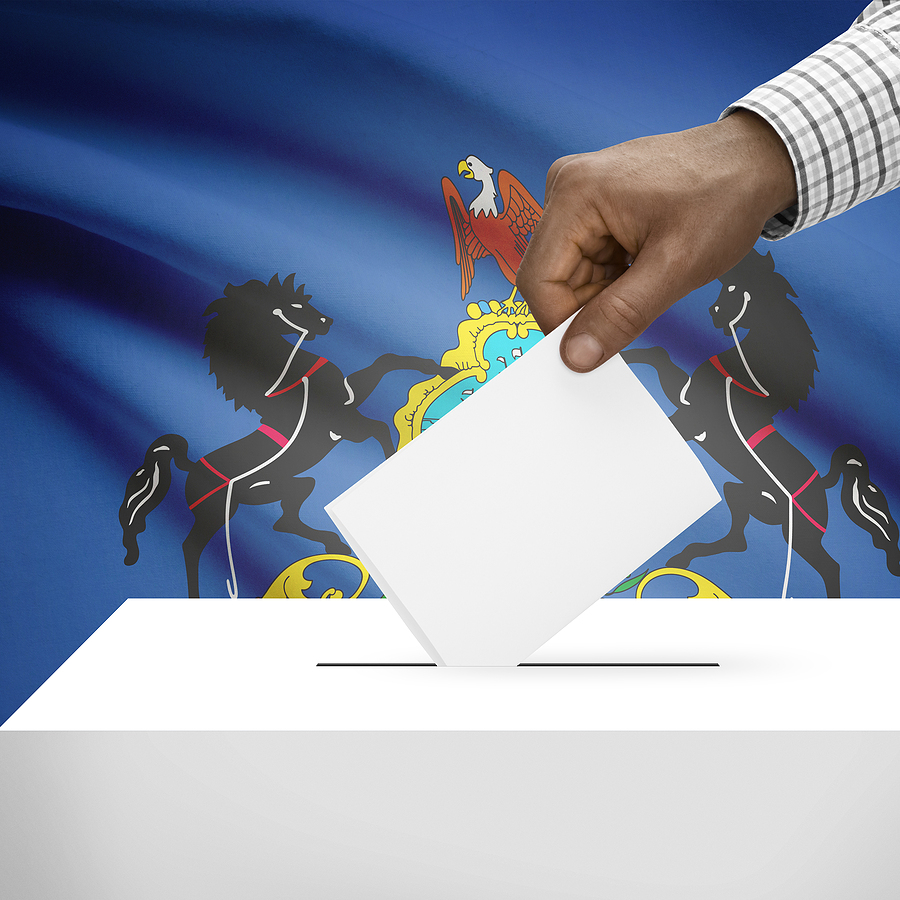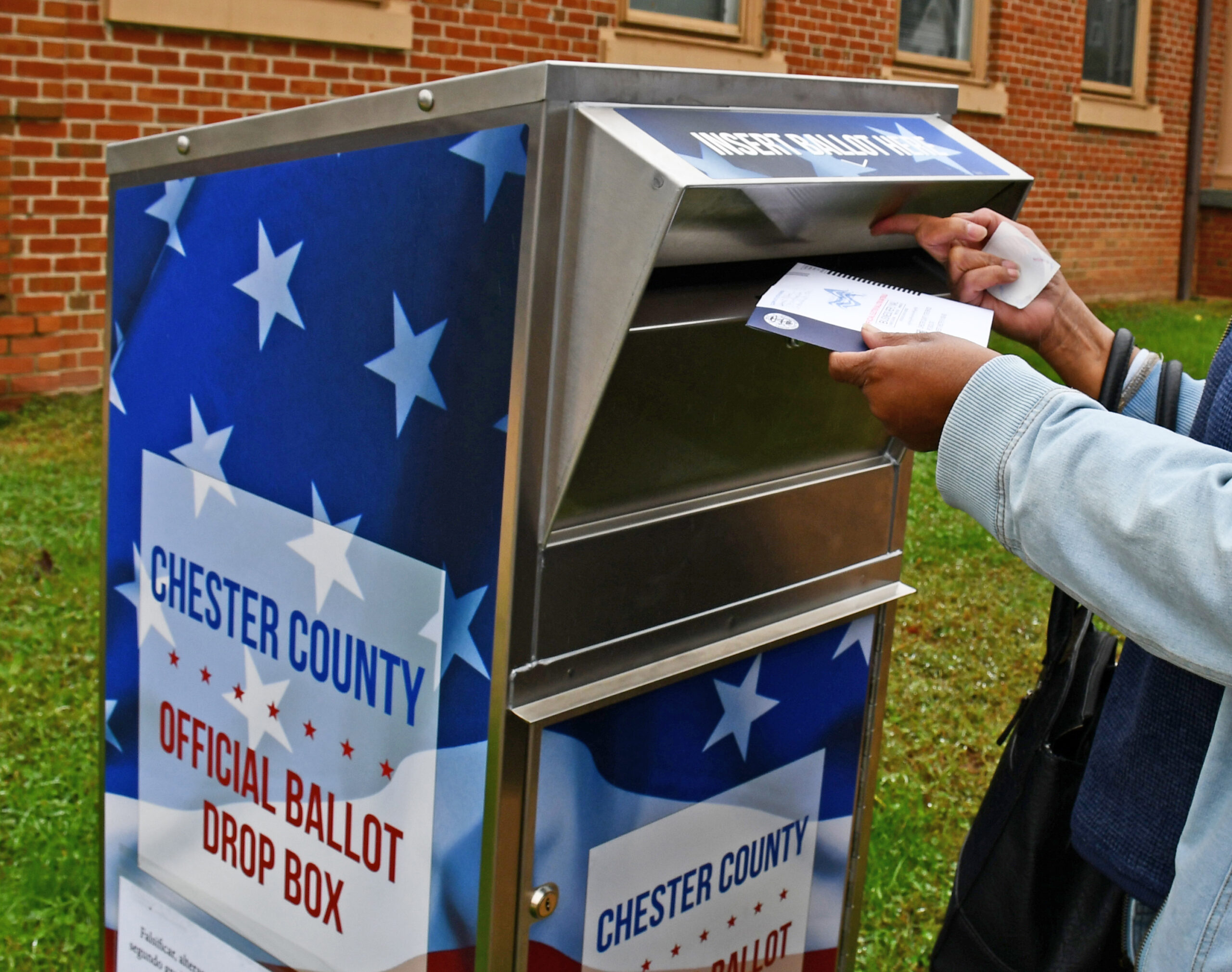DelVal Residents Join Lawsuit Demanding PA Fix Election Errors

An election integrity nonprofit has teamed up with some Delaware Valley residents in a federal lawsuit targeting Pennsylvania’s Department of State over what they claim is a failure to meet the minimum standards for a fair election in 2o22.
Diane Houser of Downingtown, Ruth Moton of Upper Chichester, and Dean Dreibelbis of Glen Mills joined the group United Sovereign Americans, which claims state and federal officials dropped the ball in the election that year.
The plaintiffs claim the state failed to properly conduct the 2022 election and that officials certified the results “despite analysis showing the election results were per se unreliable on account of apparent error rates exceeding those the law permits before any federal election becomes unreliable.” And their attorney, Bruce L. Castor Jr., says legal action is the only remedy.
“Only a court has the power to require respondents to act to bring the 2024 (and subsequent) federal elections in Pennsylvania into conformity with the minimum standards set by Congress,” Castor said. His lawsuit argues that “systemic issues which occurred in the 2022 combined federal and state election in Pennsylvania will continue uncorrected in 2024, 2026, 2028, etc. absent intervention by this court.”
The lawsuit claims election officials’ actions in 2022 did not meet minimum federal standards in the Help America Vote Act (HAVA). It asks the court to intervene to ensure that only properly registered voters cast ballots in federal and state elections for 2024.
It also asks the court to make sure that only properly cast votes are counted and that all voting systems are compliant “with all critical infrastructure requirements and risk assessments are completed within the actual use context, thereby assuring every ballot is correctly and uniformly processed, as well as accurately tabulated and secured in combined federal and Pennsylvania elections beginning in 2024.”
Many Americans remain concerned about whether elections are being conducted fairly.
A January survey by the University of South Florida found only 24 percent of Republicans believe their vote will be properly counted this year, compared to 58 percent of Democrats. Some 37 percent of Republicans are somewhat confident, 24 percent are not very confident, and 16 percent at not at all confident.
Republican National Committee Chairman Michael Whatley, who was in Newtown, Pa. for a ballot integrity event on Tuesday, said it’s a good idea to make sure the voter rolls are accurate.
“We want the [voter] rolls to be as clean as they possibly can be,” said Whatley. “Look, we don’t want people who should not be voting casting votes, like people who have passed away or people who have moved. You obviously want to make sure you get them off the rolls. We want to make sure the rolls are as accurate as possible. And we have filed lawsuits across the country to get other states to do that and we certainly support that in Pennsylvania.”
Contributing to the problem is the state of the voter rolls, that contained “hundreds of thousands of potential errors at the time of the 2022 general election,” the suit said. They included many duplicate registrations, voters with invalid or illogical voter history, voters placed in inactive statuses on questionable authority, backdated registrations, registrations with a modified date prior to registration, invalid or illogical registration dates, age discrepant registrants, and registrants with questionable addresses.”
“The ability to ‘cast and count votes’ begins with establishing eligibility and registering only qualified citizens into voter registration databases, thus assuring that all ballots granted, cast, and counted, are lawful,” the suit said.
United Sovereign Americans studied data from the 2022 Pennsylvania general election and found “hundreds of thousands of voter registration apparent errors,” the suit contends. Of the votes cast in 2022, they found a total of 1,198,598 evident voting violations, and 1,089,750 unique votes impacted by apparent voting violations.”
The plaintiffs ask the court to compel the state to correct the apparent errors evident from the 2022 elections data and prevent those same or similar ministerial errors from recurring during the Pennsylvania 2024 general election.
Department of State Press Secretary Matt Heckel called the suit “frivolous.”
And “without any supporting facts or viable legal theories, a panoply of conspiracy claims advanced by litigants who have repeatedly filed baseless actions rejected by the courts. Undeterred, these litigants and their counsel continue to waste taxpayer money. The department will respond accordingly,” said Heckel.
The U.S. Attorney General’s Office, also a defendant, declined to comment. The state Attorney General’s Office did not respond to a request for comment.
Please follow DVJournal on social media: Twitter@DVJournal or Facebook.com/DelawareValleyJournal



